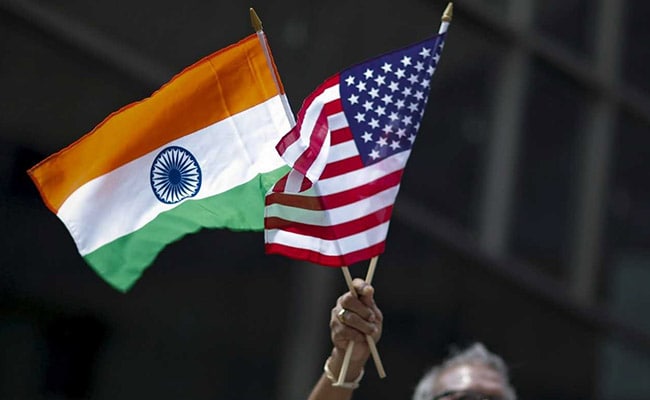
An Indian diaspora think tank has called on the US to reject its religious freedom report on India.
Washington:
Noting that USCIRF's recent annual report, which criticized India for alleged violations of religious freedom, was based on omissions and fabrication of facts with partial data, India's diaspora think tank It called on the State Department to reject the report.
The United States Commission on International Religious Freedom (USCIRF) in its annual report on Wednesday recommended that India be designated as a country of particular concern (CPC) due to the deteriorating religious freedom situation in the country. did.
India on Thursday accused the parliament-appointed body's report of trying to “interfere” in election activities and continuing to indulge in “propaganda” against the country “under the guise” of parts of its annual report. “The US Commission on International Religious Freedom is known to be a biased organization with political objectives. They continue to publish propaganda about India disguised as part of their annual report,” the Ministry of Foreign Affairs said. Spokesperson Randhir Jaiswal said in New Delhi.
The Foundation for Indian Diaspora Studies (FIIDS) in a statement on Thursday characterized the USCIRF report as biased and presenting partial data and flawed conclusions.
Khanderao Khando, director of policy and strategy at FIIDS, said the USCIRF report “omits and fabricates facts, uses partial data, covers up complete context, generalizes isolated incidents, and This is based on “doubts about enforcement.'' “The report uses partial and isolated incidents to falsely stigmatize the world's largest democracy, with a population of 1.4 billion people, and the recent “We missed an opportunity to show a positive trend,” he said.
Candelao added that it is wrong for the USCIRF to recommend the largest democracy and mostly peaceful civilization as a country of particular concern.
“Furthermore, the recommendation to assess India under FATF (Financial Action Task Force) is highly questionable, especially when India itself is a target of terrorism,” he said.
In its detailed analysis of the report, FIIDS said USCIRF's position on India contrasts with its 2023 analysis, which shows a significant year-on-year improvement.
The FIIDS analysis concluded that the insurgency in Manipur was inter-tribal, stemmed from historical conflicts exploited by drug mafias and Myanmar infiltrators, and affected all religions.
“However, USCIRF named only Christians. Moreover, we contrasted this with the position of the Archbishop of Bombay,” said FIIDS analyst Mohan Sonti.
“The report falsely blamed India for enforcing the Foreign Contribution Regulation Act (FCRA), which prevents illegal and inappropriate use of foreign funds. Why NGOs fail to abide by laws on reporting and use ” he asked.
He said the USCIRF report did not mention India's constitutional guarantees for religious freedom, including prohibitions on forced, fraudulent and coercive conversions.
“Instead, they complained about the enforcement of laws that seek to protect the gullible and disadvantaged,” he added.
“As there were no major Hindu-Muslim riots in India in 2023, the report acknowledges India's large Muslim population instead of mentioning it as a year without such riots. Instead, they presented isolated incidents in order to generalize and brand them,” FIIDS said.
“FIIDS raises questions and questions about any impact or agenda on the third largest economy and strong ally of the United States. Given the critical nature of US-India relations in 2021, FIIDS “We reject USCIRF's recommendations for careful evaluation and consideration,” the organization said in a statement.
(Except for the headline, this story has not been edited by NDTV staff and is published from a syndicated feed.)


